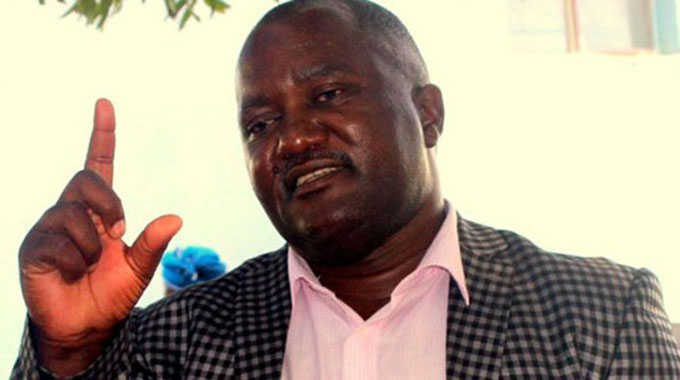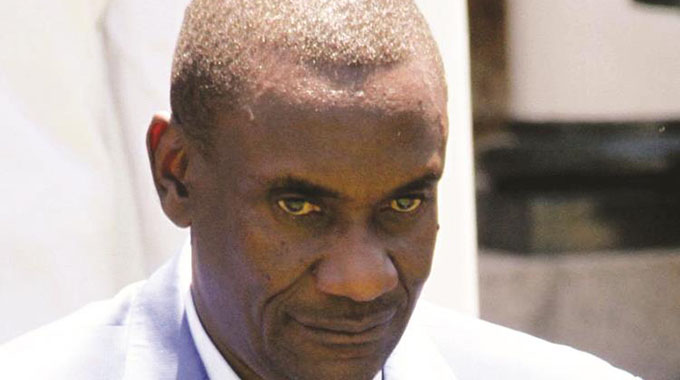In search of the ‘old normal’: Part 2

Tichaona Zindoga Political Editor
Last week we introduced a series of five articles which are anchored on the belief that Zimbabwe should restore “the old normal” – the functionality of state, its institutions and in general, livelihoods and dignity of citizens that had progressively eroded over the years.
It is a premise of these submissions that, faced with a combination of internal and external factors, Zimbabwe had come to embrace a series of “new normals” that must now be reversed if a new dispensation is to be fully realised.
Here we identified a paradox: that a lot of the work to be done appears simply to undo the “new normals” to restore the “old normal” – a state of functionality that was once experienced before the rains began to beat us.
Zimbabwe is essentially in a transition and the forthcoming election represents an opportunity for a turnaround.
Last week’s theme dwelt on the need for the “Restoration of a people’s dignity and national pride”.
It was argued that the multi-layered crisis in Zimbabwe – a complex mixture of economic, social and political issues – had the effect to pauperise, impoverish, humiliate and isolate Zimbabweans both at home and abroad, hence the need for measures that change fortunes for the better.
Restoration of social services
Consider a hypothetical man called John.
John grew up in Zimbabwe in the early years of Independence and boasts of how life was easy in those years.
He likes to give such examples as the milkman and newspaper seller delivering these products to people’s doorsteps.
There was also free education and healthcare and for recreation they would watch the famous “bioscope” or visit cinemas.
Transport was efficient. And so on. John says his mother was a nurse and his father a teacher – the richest people in the neighbourhood who happened also to own a car and house.
The story sounds familiar enough – in that bitter-sweet sort of way. Yet for many people who grew up in the last two decades, they never experienced this “old normal” – new normal set in.
Essentially, old hypothetical John is speaking mainly to an important branch called social infrastructure.
Zimbabwe had a solid social infrastructure.
The Department of Planning, Western Australia (2012) defines it as “the interdependent mix of facilities, places, spaces, programmes, projects, services and networks that maintain and improve the standard of living and quality of life in a community”.
Social infrastructure can be categorised into two – hard and soft. The former includes health facilities and centres, education facilities, recreation grounds, police stations, fire and emergency service buildings, art and cultural facilities and other community facilities.
Soft infrastructure involves programmes, resources, services, and community and cultural development.
Social policy, towards a welfare state
The other side of old hypothetical John’s social infrastructure regards social policy that is restorative and hopefully gives impetus for national growth as well as long-term resolution of political and social problems.
A social policy will restore many aspects of the old regarding how people live.
To all intents and purposes, Zimbabwe is moving towards what is generally referred to as “post-conflict state”.
We may not have experienced a war, neither are we a Rwanda or a Sudan, but the conditions are not dissimilar: the destruction of systems and infrastructure, the dislocation and underdevelopment.
We have our redeeming features too, as some institutions and systems are still working and need just impetus and support going forward.
Key to restoring Zimbabwe – for whoever wins the next election – will be to have a firm social policy that will do well to borrow from other post-conflict situations.
Fred Cocozzelli (2014) writing for the United Nations Research Institute for Social Development notes that, post-conflict social policy encompasses the formulation and implementation of a wide range of social welfare programmes, such as pensions, social assistance, disability payments, and unemployment support, as well as programmes that provide other kinds of social support such as social care institutions, and social work agencies.
This underpins the creation of a “welfare state” where there exists Government-protected minimum standards of income, nutrition, health and safety, education and housing assured to every citizen as a social right and not as a charity.
This latter point is critical in that we must highlight that Government will also have the duty to provide employment and grow the economy.
Cocozelli argues that effective social policies create conditions for better productivity, employment and economic performance, hence the need to lay the institutional foundation for an effective labour market management is a key to reviving employment generation.
He explains that social welfare systems, as the combined programmes of social policy, intercede as mediating agents to reduce the potential impact of negative outcomes in the labour market through the redistributing of resources and extending insurance to guard against risk.
Other measures that Government can do include redistributing subsidised private markets for loans that provide low-cost capital to State-administered grants to the indigent; from microcredit schemes to food stamps. (We knew that as food-for-work).
Perhaps these issues are not entirely new. Zimbabwe’s early Independence years contained similar measures.
But Cocozelli emphasises that social welfare is a powerful tool for creating a foundation for social solidarity on both normative and economic grounds; creates a broad sense of solidarity; and support political stability and a sense of positive identification with the larger society.
Erin McCandless and James Rogan (2014) add that social services enhance the citizen-state social compact through the provision of tangible, needed services, create incentives for non-violent behaviour and support state-building efforts.
Remembering the “marginalised”
It is essential that as the Government that emerges from the 2018 elections moves forward, it takes care to incorporate all regions of the country so that no one feels marginalised – or remarginalised for that matter.
Zimbabwean political discourse has been beset by claims by some people that certain areas have been deliberately left out of development.
While underdevelopment is a factor, it is indeed true of many areas outside urban areas – from Matabeleland North to Manicaland.
Only the expedient or the less travelled will argue otherwise. Yet the duty of Government is to ensure development and peace, which will be good for national unity and development.
But all these things will not come cheap.
Zimbabwe will no doubt require to commit its resources and also look up to partners that are willing to fund reconstruction after two decades of conflict and underdevelopment.
In the next instalment we look at the “Restoration of confidence in the economy”.
Feedback: [email protected]









Comments